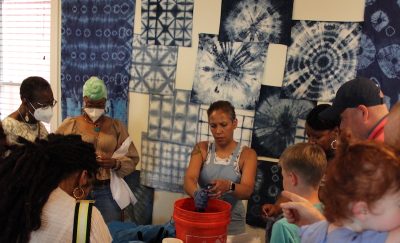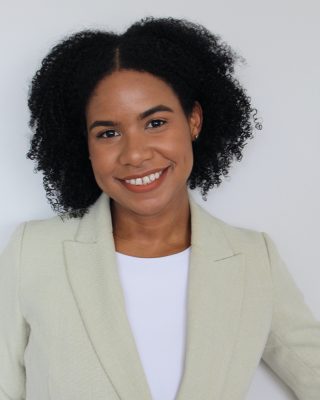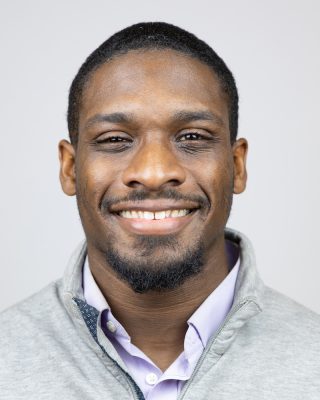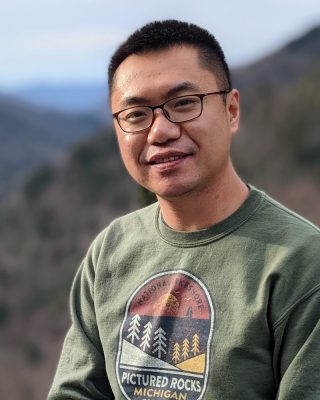“Human thriving” is among the areas of “distinctive excellence” enumerated in the University’s 2023 Academic Strategic Plan. This concept is inspired by the words of Chancellor Erastus Haven. In 1871, he charged Syracuse students “to thrive here, to learn here, to teach here, to make lifelong friends here, and to seek knowledge without end.”

This story appears in the 2023 issue of Education Exchange.
Today, the University defines human thriving as valuing and enabling the contributions of people of all ages, abilities, and backgrounds and as understanding the physical and social conditions needed to create and support healthy and sustainable communities for everyone, particularly those who have been historically excluded or neglected.
In this alumni roundtable, we ask graduates of SOE’s Counseling and Human Services doctoral program to offer their advice on how we all can support human thriving in broadly diverse, fully equitable, and radically inclusive contexts.
Kirsis A. Dipre G’22
Kirsis Dipre serves as core faculty in the Counseling@Northwestern program at The Family Institute at Northwestern University.
 To me, human thriving means creating a space where we as a collective can be our authentic selves, bring our existing knowledge, and co-create experiences and knowledge that propel everyone involved forward regardless of differences in the space.
To me, human thriving means creating a space where we as a collective can be our authentic selves, bring our existing knowledge, and co-create experiences and knowledge that propel everyone involved forward regardless of differences in the space.
Human thriving means that we no longer must live in separate worlds, institutions of higher education, and our personal lives. It is as if there is no space for our full selves to be received in academia, which creates dissonance and deepens a wound we can recognize but struggle to name. Only when we are able to integrate our full selves are we able to heal from this wound,
Therefore to answer this question, the “we” needs to be named. Institutions are the “we” because “we” as individuals—who are surviving and aiming to thrive in these systems—can only create spaces of mutuality in corners and pockets within institutions.
Institutions must first assess gaps, areas that conflate thriving with surviving, and provide support for improvements. It takes intentional work for an institution to look at itself, recognize areas for growth, and properly care for them to encourage them to grow and thrive.
To me, human thriving means creating a space where we as a collective can be our authentic selves, bring our existing knowledge, and co-create experiences.
Kirsis A. Dipre G’22
One answer is to create spaces that are equitable and responsive to those in it, without privileging certain voices, with the goal of making those spaces the norm. When we are able to challenge and change the current norm—through critical recognition of the parts that are not working—then we can begin to effectively promote human thriving.
Jordan P. Shannon G’20
Jordan Shannon is Assistant Professor of Counselor Education in Seattle University’s College of Education.
 As an academic in counselor education, I have been reflecting on what it means to make sure my students are thriving and prepared to embrace a diversity of ideas, challenges, knowledge, and experiences.
As an academic in counselor education, I have been reflecting on what it means to make sure my students are thriving and prepared to embrace a diversity of ideas, challenges, knowledge, and experiences.
Part of that challenge has been making sure students are aware of their own worldview, biases, and assumptions. This is often done through presenting knowledge of systemic inequities, diverse needs, and culturally responsive strategies to aid wide variety of populations.
Students and I are further challenged by reflecting quite vulnerably on our individual and collective identities in face-to-face measures (e.g., skills practice, group counseling, and delivering feedback). It is a delicate tension to maintain.
As students and I start to feel emboldened to bring our full selves into the work of diversity, equity, and inclusive practices, doing so can leave folx—particularly those who hold multiple marginalized identities—vulnerable to isolation, invalidation, and discomfort from majority culture peers.
I believe as an instructor, with both institutional and social power, it is my responsibility to craft a space that breeds boldness but specifically a space for those in the margins. Often this means modeling vulnerability of my worldview, assumptions, and biases for my class, so the power dynamic can feel less present.
Peitao Zhu G’20
Peitao Zhu is Assistant Professor of Counseling and ACUE Distinguished Teaching Scholar in Northern Illinois University’s Department of Counseling and Higher Education.
 In the increasingly polarizing global climate, we often interact with one another in non-relational manners. We judge the worth of fellow human beings through the materialistic lens of accomplishment, status, and financial assets.
In the increasingly polarizing global climate, we often interact with one another in non-relational manners. We judge the worth of fellow human beings through the materialistic lens of accomplishment, status, and financial assets.
We segregate ourselves among those with similar identities and immutable characteristics. We stay siloed and sheltered within those who share our same belief systems and demonize those who do not.
One cannot thrive if actions are motivated by fear, insecurity, and defensiveness. One cannot thrive if they are alienated from their fundamental need to be connected to.
The responsibility to foster human thriving, in my view, does not lie in any abstract “system,” because systems consist of willing participants. By only scapegoating the “system,” we run the risk of not holding ourselves accountable for the same types of transgressions that we condemn others for.
Instead, I believe each of us ought to play an active role in shifting the global tide of polarization, beginning with an honest reflection of our own biases, flaws, and growth edges: Do I judge others based on their opinions and ideologies? Do I value one form of diversity but am dismissive of another? Am I willing to challenge the opinions and beliefs that I hold close to my heart in facing disconfirming evidence?
In short, only through a shared deep commitment to valuing our human connections can we achieve the collective wisdom to navigate this exceedingly complex global society.
